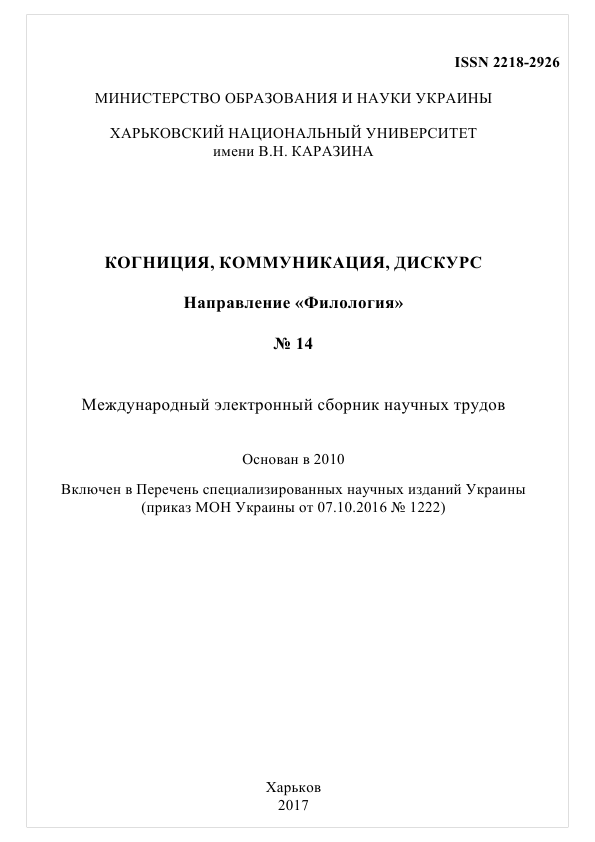Complexity of natural phenomena and linguistic coherence
Abstract
With the progress of science, we observe an unprecedented use of adverbial participles, which come to express increasingly more complex concepts and relations. This tendency is evident not only in the texts of natives, but also of non-natives. The present study examines to what extent non-native speakers of English are influenced by linguistic norms of their native languages when writing academic texts in English. It also focuses on the role of adverbial participles in the syntactic and informative organization of scientific English. The quantitative-qualitative analysis of the material has revealed that the encoding and transmission of complex ideas in scientific English require a high degree of coherence. The results of the paper are sure to contribute to current research in applied and corpus linguistics from the perspective of speakers’ cognitive processes and their linguistic realizations.
Downloads
References
Evans, V., & Green, M. (2006). Cognitive Linguistics. An Introduction. Mahwah, NJ: Lawrence Erlbaum Associates, Inc., Publishers.
Granger, S. (1997). On Identifying the Syntactic and Discourse Features of Participle Clauses in Academic English: Native and Non-native Writers Compared. In: J.Aarts, I. de Mönnink, & H. Wekker (Eds.). Studies in English Language and Teaching (pp. 185–198). Amsterdam & Atlanta: Rodopi.
Holtz, M. (2011). Lexico-grammatical Properties of Abstracts and Research Articles. A Corpus-Based Study of Scientific Discourse from Multiple Disciplines. Gehenmigte Dissertation. Darmstadt.
Langacker, R.W. (2002). Concept, Image and Symbol: the Cognitive Basis of Grammar. Berlin, New York: Mouton de Gruyter.
Leech, G., & Hundt, M. (2009). Change in Contemporary English. A Grammatical Study. New York: Cambridge University Press.
Schmied, J., Haase, Ch., & Povolna, R. (2007). Complexity and Coherence. Approaches to Linguistic Research and Language Teaching. Gottingen: Culliver Verlag.
Authors, who publish with this journal, accept the following conditions:
The authors reserve the copyright of their work and transfer to the journal the right of the first publication of this work under the terms of the Creative Commons Attribution License (CC BY), which allows other persons to freely distribute a published work with mandatory reference to the authors of the original work and the first publication of the work in this journal.
Authors have the right to enter into separate additional agreements for the non-exclusive dissemination of the work in the form in which it was published by this journal (for example, to post the work in the electronic institutions' repository or to publish as part of a monograph), provided that the link to the first publication of the work in this journal is given.
The journal policy allows and encourages the authors to place the manuscripts on the Internet (for example, in the institutions' repositories or on personal websites), both before the presentation of this manuscript to the editorial board and during review procedure, as it contributes to the creation of productive scientific discussion and positively affects the efficiency and dynamics of citing the published work (see The Effect of Open Access).




